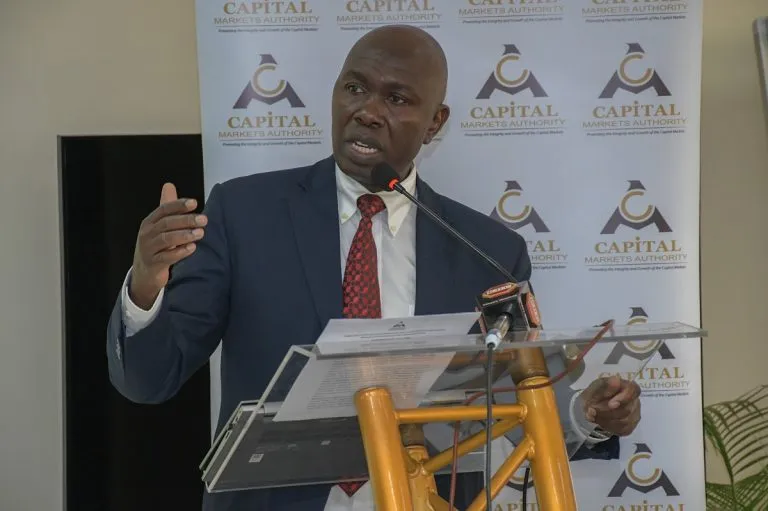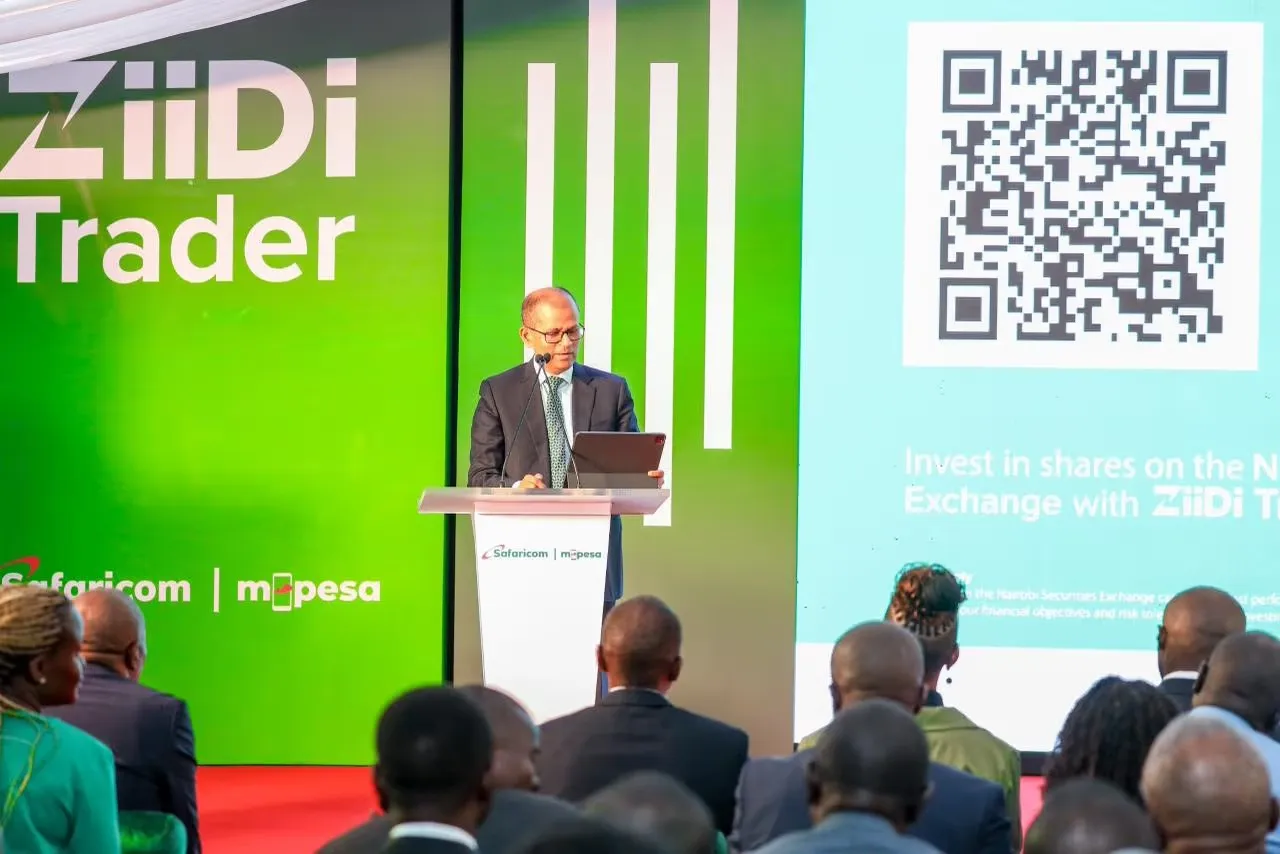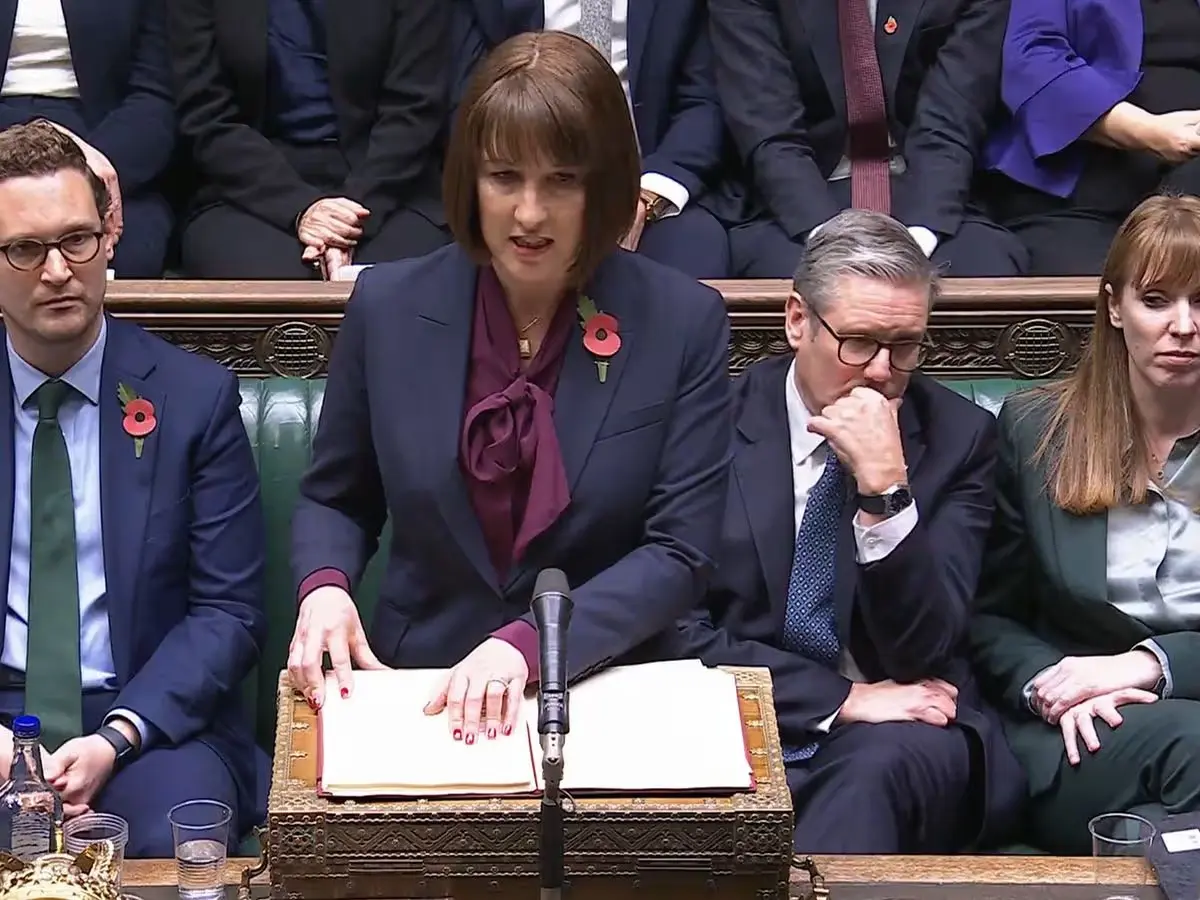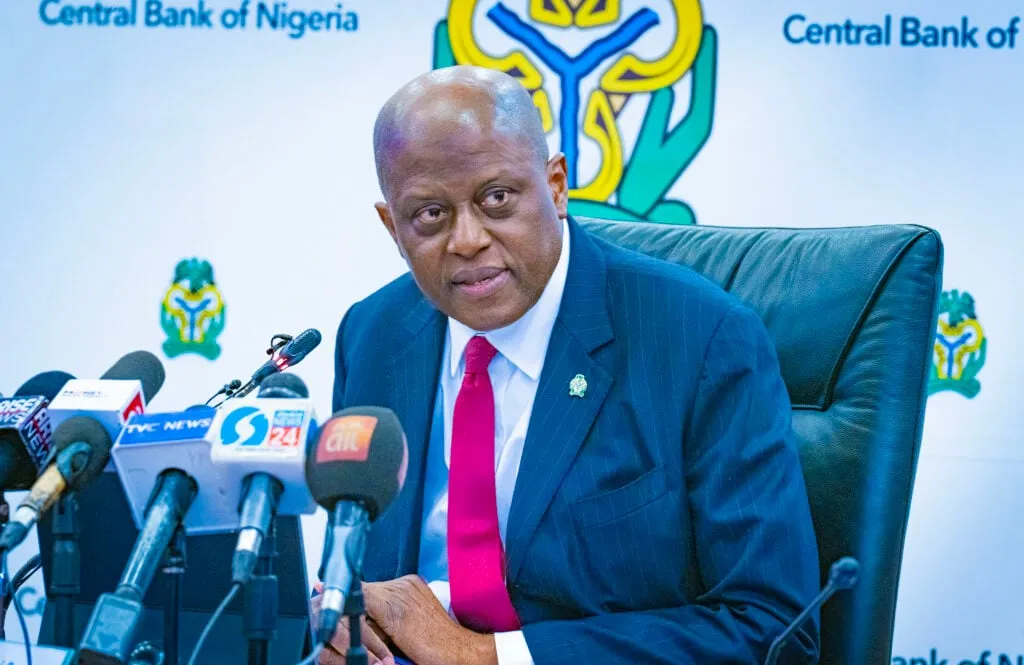In a significant stride towards fortifying its position as a regional financial powerhouse, Kenya’s Capital Markets Authority (CMA) has announced a wave of approvals for the establishment of new collective investment schemes (CIS) and sub-funds. This strategic move, detailed in a statement released by the CMA today, is poised to inject fresh dynamism into Kenya’s capital markets, offering investors an expanded array of product choices and further deepening the nation’s financial landscape. The approvals underscore a growing confidence among both market players and regulators in the resilience and potential of Kenya’s investment ecosystem.
The announcement comes at a time when collective investment schemes in Kenya are experiencing unprecedented growth, with total assets under management (AUM) now surpassing an impressive Ksh. 500 billion (approximately $3.8 billion USD, based on current exchange rates). This remarkable milestone, highlighted by CMA Chief Executive Officer FCPA Wyckliffe Shamiah, reflects a robust investor appetite for diversified and professionally managed investment vehicles.
Understanding Collective Investment Schemes (CIS): A Gateway to Growth
At its core, a Collective Investment Scheme (CIS) is a pooled investment vehicle that gathers money from multiple investors and invests it in a diversified portfolio of assets, such as stocks, bonds, money market instruments, or real estate. These schemes are professionally managed by fund managers, offering individual investors, particularly those with limited capital or investment expertise, access to a broader range of opportunities and professional guidance that might otherwise be out of reach. In Kenya, CIS are commonly known as unit trusts or mutual funds.
The importance of a thriving CIS sector extends far beyond individual investor convenience. For the broader economy, CIS play a crucial role in capital formation, channeling household savings into productive investments that fuel economic growth. They enhance market liquidity by facilitating the buying and selling of securities, and they contribute to financial inclusion by making investment accessible to a wider segment of the population. The growth of CIS in Kenya is a clear indicator of increasing financial literacy and a shift towards more sophisticated investment habits among the populace.
CMA’s Mandate: Fostering a Robust and Secure Market
The Capital Markets Authority (CMA) of Kenya serves as the primary regulatory body tasked with the orderly development and supervision of the capital markets. Its mandate encompasses licensing and regulating market intermediaries, approving new financial products, and ensuring investor protection. The CMA’s rigorous approval process for new schemes and sub-funds is designed to ensure that these products meet stringent regulatory standards, promoting transparency, fairness, and ultimately, investor confidence.
CMA CEO Wyckliffe Shamiah emphasized this commitment, stating, “These approvals reflect growing investor confidence and increased appetite for diversified investment options, including foreign currency-denominated and offshore funds.” He further reiterated the Authority’s dedication to “supporting the development of innovative capital markets products that enhance investor choice and contribute to economic growth.” This proactive stance by the CMA is crucial in fostering an environment where innovation can flourish while safeguarding the interests of investors.
New Frontiers in Investment: A Detailed Look at the Approved Schemes
The latest approvals by the CMA introduce a diverse range of investment opportunities, catering to various risk appetites and investment objectives.
1. Sanlam Investments East Africa: Expanding Global Access
Sanlam Investments East Africa, a prominent player in the region’s asset management landscape, has received approval to establish a new sub-fund under its existing structure: the Sanlam Special GBP Fixed Income Fund. This unit portfolio will be denominated in Great British Pounds (GBP), marking a significant step towards offering Kenyan investors direct exposure to foreign currency-denominated fixed-income securities.
The introduction of GBP-denominated funds is particularly relevant in today’s globalized economy. It provides investors with:
- Currency Diversification: A hedge against potential depreciation of the Kenyan Shilling (Ksh) against major international currencies like the GBP.
- Access to Global Markets: Opportunities to tap into the stability and potentially higher yields of international bond markets, which may offer different risk-return profiles compared to domestic fixed-income instruments.
- Portfolio Resilience: By diversifying across currencies and geographies, investors can enhance the overall resilience of their portfolios against localized economic shocks.
Sanlam’s move reflects a broader trend among sophisticated investors seeking to internationalize their portfolios, a trend the CMA is actively facilitating to enhance Kenya’s appeal as an investment destination.
2. ALA Capital Limited: A Comprehensive Suite of Options
ALA Capital Limited has secured approval to register the ALA Capital Collective Investment Scheme (ALA CIS), a comprehensive umbrella scheme comprising six distinct sub-funds. This broad offering caters to a wide spectrum of investment strategies:
- ALA Balanced Fund: This fund typically invests in a mix of equity (stocks) and fixed-income (bonds) securities, aiming to provide a balance between capital growth and income generation. It’s often suitable for investors seeking moderate risk and diversified exposure.
- ALA Multi-Asset Special Fund: This fund offers even greater flexibility, investing across various asset classes, which could include equities, fixed income, real estate, and alternative investments. Its “special” designation might imply a more active or specialized investment strategy, potentially targeting unique opportunities or specific themes.
- ALA Equity Fund: Focused primarily on investing in listed company shares, this fund aims for capital appreciation. It appeals to investors with a higher risk tolerance seeking to benefit from the growth of companies listed on the Nairobi Securities Exchange (NSE) or other regional/international exchanges.
- ALA Fixed Income (KSH) Fund: This fund invests in Kenyan Shilling-denominated debt instruments, such as government bonds and corporate bonds, providing investors with regular income and capital preservation. It’s a staple for conservative investors.
- ALA Money Market Fund (USD): This fund invests in short-term, highly liquid, USD-denominated debt instruments. It offers investors a safe haven for their capital, competitive returns, and the benefit of holding assets in a stable foreign currency, making it attractive for those with foreign currency obligations or seeking to preserve purchasing power.
- ALA Money Market Fund (KSH): Similar to its USD counterpart, this fund invests in short-term, highly liquid, KSH-denominated debt instruments, providing a low-risk option for parking cash while earning competitive returns.
The combination of KSH and USD-denominated funds within ALA Capital’s offering provides investors with crucial flexibility, allowing them to manage currency risk and align their investments with their specific financial goals and currency needs.
3. VCG Asset Management Limited: Tapping Offshore Opportunities
VCG Asset Management Limited has also received approval to register three funds under its VCG Offshore Opportunities Special Funds umbrella. The “offshore” designation is key here, indicating that these funds provide Kenyan investors with avenues to invest in markets outside Kenya, albeit still denominated in local or foreign currency. These include:
- VCG Offshore Money Market Fund (KSH): While denominated in KSH, this fund likely invests in money market instruments issued by offshore entities or held in offshore accounts, potentially offering different risk-return profiles or access to a wider range of short-term instruments.
- VCG Offshore Money Market Special Fund (USD): This fund provides a direct gateway to USD-denominated money market instruments in international markets, offering stability and liquidity in a globally recognized reserve currency.
- VCG Offshore Fixed Income Special Fund (KSH): This fund would invest in KSH-denominated fixed income securities, but potentially those issued by international borrowers or managed through offshore platforms, again providing a different dimension of diversification.
The emphasis on “offshore opportunities” aligns with Kenya’s broader ambition to become a leading financial hub, including the development of the Nairobi International Financial Centre (NIFC). The NIFC aims to attract international financial services and facilitate cross-border capital flows, and the availability of offshore-focused funds is a crucial component of this vision, enabling local investors to participate in global markets and attracting foreign capital.
The Strengthening Ecosystem: The Role of Corporate Trustees
The approvals for new CIS and sub-funds are complemented by another significant development from May 2025: the CMA’s licensing of three new corporate trustees. These entities are vital to the integrity and functioning of the CIS market.
What is a Corporate Trustee?
A corporate trustee acts as an independent custodian and oversight body for collective investment schemes. Their primary responsibilities include:
- Safeguarding Investor Assets: Holding the assets of the CIS independently of the fund manager, ensuring that investors’ money is protected even if the fund manager faces financial difficulties.
- Oversight and Compliance: Monitoring the fund manager’s activities to ensure they comply with the fund’s constitutive documents, regulatory requirements, and investment mandates.
- Investor Protection: Acting in the best interests of the unit holders, ensuring fair valuation of assets and proper administration of the fund.
The licensing of MTC Trust & Corporate Services Limited, Standard Chartered Bank Kenya, and NCBA Group Plc as corporate trustees significantly strengthens the oversight framework for Kenya’s growing CIS market.
- MTC Trust & Corporate Services Limited: This firm brings a broad range of fiduciary and trustee services, including security trustee services and management of specialized structures, adding depth to the market’s trust capabilities.
- Standard Chartered Bank Kenya: Already a major player in custody services since 2010, holding the largest market share in that segment, Standard Chartered’s expansion into corporate trustee services leverages its extensive experience and robust infrastructure. This move solidifies its position as a comprehensive financial services provider in the Kenyan market.
- NCBA Group Plc: Licensed to offer corporate trustee services as part of its broader custody solutions, NCBA Group Plc aims to deepen its investment services offering. This strategic integration allows NCBA to provide a more holistic suite of services to its clients, from banking to investment and asset safeguarding.
The presence of multiple, reputable corporate trustees enhances competition, improves service quality, and provides an additional layer of security for investors, fostering greater trust in the capital markets.
Kenya’s Economic Trajectory and Investment Appeal
These developments in the capital markets are not isolated; they are deeply intertwined with Kenya’s broader economic trajectory and its growing appeal as an investment destination in East Africa. Kenya’s economy, the largest in East Africa, has demonstrated resilience and consistent growth, driven by a diversified economic base that includes agriculture, services, manufacturing, and a rapidly expanding digital sector.
Key factors contributing to Kenya’s investment appeal include:
- Strategic Location: Kenya serves as a vital gateway to the East African region, offering access to a market of over 170 million people.
- Robust Infrastructure Development: Significant investments in infrastructure, including roads, railways (like the Standard Gauge Railway), ports, and energy projects, have improved connectivity and reduced the cost of doing business.
- Progressive Regulatory Environment: The CMA, alongside other regulatory bodies like the Central Bank of Kenya (CBK), has been proactive in implementing reforms aimed at improving the ease of doing business, enhancing market efficiency, and attracting both domestic and foreign investment.
- Growing Middle Class and Demographics: A young and increasingly urbanized population with rising disposable incomes provides a strong consumer base and a dynamic workforce.
- Technological Adoption: Kenya is a leader in mobile money and digital innovation, which has significantly impacted financial services, making them more accessible and efficient. The proliferation of mobile trading platforms has democratized access to capital markets for retail investors.
The government’s long-term development blueprint, Vision 2030, identifies the financial services sector as a key pillar for achieving middle-income status. The continuous evolution and deepening of the capital markets, as evidenced by these new approvals, are crucial for mobilizing the domestic and international capital required to fund Vision 2030 projects and broader economic development initiatives.
Addressing Challenges and Seizing Future Opportunities
Despite the positive momentum, Kenya’s capital markets, like any emerging market, face certain challenges. Financial literacy remains an area requiring continuous effort to ensure that a broader segment of the population understands investment products and risks. While retail participation is growing, the market depth beyond a few large-cap companies could be further enhanced. Global economic headwinds, such as fluctuating commodity prices, inflation, and geopolitical tensions, can also impact investor sentiment.
However, these challenges are overshadowed by significant opportunities:
- Untapped Retail Investor Base: A large portion of the Kenyan population is yet to actively participate in the capital markets, representing a substantial growth opportunity for CIS.
- Regional Integration: Kenya’s role in the East African Community (EAC) and broader African free trade agreements presents opportunities for cross-listing and regional investment products.
- Green Finance: There is growing global and local interest in sustainable and green investments. The CMA has been exploring frameworks for green bonds and other sustainable finance products, which could attract a new class of investors.
- Technological Advancements: Further leveraging fintech and blockchain technologies could revolutionize market operations, reduce costs, and enhance accessibility.
The CMA’s proactive approach to product diversification, including the emphasis on foreign currency-denominated and offshore funds, is a testament to its commitment to building a resilient and globally competitive capital market. By offering these options, Kenya is not only catering to the evolving needs of its investors but also positioning itself as an attractive destination for foreign portfolio investment.
Conclusion: A Vibrant Future for Kenya’s Capital Markets
The recent approvals by the Capital Markets Authority for new collective investment schemes and sub-funds, alongside the licensing of additional corporate trustees, mark a pivotal moment in the evolution of Kenya’s financial sector. These developments are a clear indication of a maturing market, characterized by increasing product diversity, enhanced investor confidence, and a robust regulatory framework.
As Kenya continues its journey towards becoming a leading financial hub in Africa, the deepening of its capital markets will be indispensable. The ability to mobilize domestic savings, attract foreign capital, and offer sophisticated investment solutions is crucial for funding the nation’s ambitious development agenda. With a supportive regulatory environment, a dynamic economy, and a growing investor base, Kenya’s capital markets are poised for a vibrant future, offering unparalleled opportunities for growth and prosperity.
Ready to take your career to the next level? Join our dynamic courses: ACCA, HESI A2, ATI TEAS 7 , HESI EXIT , NCLEX – RN and NCLEX – PN, Financial Literacy!🌟 Dive into a world of opportunities and empower yourself for success. Explore more at Serrari Ed and start your exciting journey today! ✨
photo source: Google
By: Montel Kamau
Serrari Financial Analyst
15th July, 2025
Article, Financial and News Disclaimer
The Value of a Financial Advisor
While this article offers valuable insights, it is essential to recognize that personal finance can be highly complex and unique to each individual. A financial advisor provides professional expertise and personalized guidance to help you make well-informed decisions tailored to your specific circumstances and goals.
Beyond offering knowledge, a financial advisor serves as a trusted partner to help you stay disciplined, avoid common pitfalls, and remain focused on your long-term objectives. Their perspective and experience can complement your own efforts, enhancing your financial well-being and ensuring a more confident approach to managing your finances.
Disclaimer: This article is for informational purposes only and does not constitute financial advice. Readers are encouraged to consult a licensed financial advisor to obtain guidance specific to their financial situation.
Article and News Disclaimer
The information provided on www.serrarigroup.com is for general informational purposes only. While we strive to keep the information up to date and accurate, we make no representations or warranties of any kind, express or implied, about the completeness, accuracy, reliability, suitability, or availability with respect to the website or the information, products, services, or related graphics contained on the website for any purpose. Any reliance you place on such information is therefore strictly at your own risk.
www.serrarigroup.com is not responsible for any errors or omissions, or for the results obtained from the use of this information. All information on the website is provided on an as-is basis, with no guarantee of completeness, accuracy, timeliness, or of the results obtained from the use of this information, and without warranty of any kind, express or implied, including but not limited to warranties of performance, merchantability, and fitness for a particular purpose.
In no event will www.serrarigroup.com be liable to you or anyone else for any decision made or action taken in reliance on the information provided on the website or for any consequential, special, or similar damages, even if advised of the possibility of such damages.
The articles, news, and information presented on www.serrarigroup.com reflect the opinions of the respective authors and contributors and do not necessarily represent the views of the website or its management. Any views or opinions expressed are solely those of the individual authors and do not represent the website's views or opinions as a whole.
The content on www.serrarigroup.com may include links to external websites, which are provided for convenience and informational purposes only. We have no control over the nature, content, and availability of those sites. The inclusion of any links does not necessarily imply a recommendation or endorsement of the views expressed within them.
Every effort is made to keep the website up and running smoothly. However, www.serrarigroup.com takes no responsibility for, and will not be liable for, the website being temporarily unavailable due to technical issues beyond our control.
Please note that laws, regulations, and information can change rapidly, and we advise you to conduct further research and seek professional advice when necessary.
By using www.serrarigroup.com, you agree to this disclaimer and its terms. If you do not agree with this disclaimer, please do not use the website.
www.serrarigroup.com, reserves the right to update, modify, or remove any part of this disclaimer without prior notice. It is your responsibility to review this disclaimer periodically for changes.
Serrari Group 2025
















